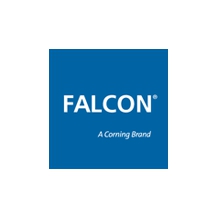$ 711.75
Details:
Cell culture on permeable membranes permits diffusion of media components to both apical and basolateral cell surfacesMembranes with extracellular matrix (ECM) further improve in vitro cell culture systems by providing cells with relevant protein substratesCorning® BioCoat™ Cell Culture Inserts contain Corning® Falcon™ Cell Culture Inserts coated with extracellular matrix (ECM) and are packaged ready-to-use in Corning® Falcon™ Companion Plates. Cell culture on microporous membranes has been shown to promote differentiation of a variety of epithelial and mesenchymal cells in vitro, especially in the presence of ECM.ECM is a vital component of the cellular microenvironment in vivo. The use of ECM growth substrates in vitro has been shown to promote cell growth, cell-specific morphology, and differentiated function. For example, collagen I and fibronectin have been used on microporous inserts to establish barrier function in monolayers of intestinal epithelial and endothelial cells, to culture a renal cell line that expresses kidney-specific peptide transporters, and to culture keratinocytes. Additionally, Corning® BioCoat™ Matrigel®™ Matrix coated inserts have been used to maintain polarized secretion in uterine, thyroid and mammary epithelial cells.The track-etched polyethylene teraphthalate (PET) membranes used in Corning® BioCoat™ Cell Culture Inserts have individual cylindrical pores in a broad range of sizes including 0.4, 1.0, 3.0, and 8.0 µm.Applications include:Promotion of epithelial cell polarityDifferentiation of a variety of cell typesTransport and permeability studiesTransendothelial migrationTumor cell invasion assaysChemotaxis and haptotaxis assaysIn vitro toxicologyCo-culture studiesThe PET membrane offers several advantages:Low binding properties minimize the loss of small molecules, including low molecular weight proteins and other natural and synthetic compounds. Therefore, the membrane is ideal for transport or intercellular communications studiesLow pore-density membranes are transparent, allowing living cells to be viewed with a phase contrast microscopeExceptional durability assures membranes are compatible with most solvents used during fixation and staining protocols for light and electron microscopyMembranes will not tear or curl and remain easy to handle when removed from insert housingCorning® BioCoat™ Cell Culture Inserts offer:Corning® Falcon™ Cell Culture Inserts’ innovative hanging design facilitates pipetting and reduces risk of medium wickingCorning® Falcon™ Companion Plates’ labyrinth lid design and condensation rings reduce evaporation and risk of contaminationChoice of 6, 12, and 24 well plate sizesAn extensive selection of ECMs for improved cell attachment morphology, and functionalityCorning® BioCoat™ Cell Culture Inserts are available with the following selection of ECMs: Three-Dimensional Matrices: Corning® Matrigel®™ Matrix, Fibrillar Collagen Thin-Layer Matrices: Collagen I, Fibronectin, Collagen iv, LamininQuality Control: All cell culture inserts are tested for ability to promote cell attachment and spreading or differentiation (cell type used is specific for each ECM). Tested and found negative for bacteria and fungi.Storage and Stability: Corning® BioCoat™ Collagen I, Collagen iv, Fibrillar Collagen, Fibronectin, and Laminin Inserts stable for = three months at 2-8°C. Corning® BioCoat™ Matrigel®™ Matrix Inserts stable for = three months at -20°C. Corning® BioCoat™ Control Inserts and Deep-Well Plates stable at room temperature.


